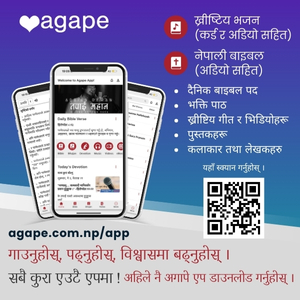
BP Khanal(1)
National Coordinator, IPPFoRB-Nepal Chapter(2) Secretariat
- Freedom of Religion or Belief in Nepali Context
With the declaration of Nepal as secular country in 2007 has brought many issues with both pros and cons in the context of socio-political arena of Nepal. The abolishment of monarchy in the “Only” Hindu kingdom in the world, Nepal has been experiencing latent communal disputes which can be outburst any time. The religious minority groups are the vulnerable, and facing various problems related their identities. There are obvious privations in the legal provision which fail for registration of properties such as monastery, masque, church and theological institutions, religious properties and burial grounds and so on. Minority groups also has been facing several social problems and often being targeted physically even more after the Comprehensive Peace Accord (CPA) between Maoist and Government of Nepal (GoN) in 2006. The number of incidents occurred right after the CPA, worship centers of the religious minorities, such as Churches and Christian institutions as well as mosques were vandalized and bombed, a Catholic priest was shoot dead, pastors and believers are beaten, killed, mocked in the societies. Even civil servants, those who are identified of being one of the minority believer, humiliated and forced to resign due to circumstance created within because of their faith. It seems that the changed scenario of the political development allows it people to choose any religious faith and convert, but many of the converted believers has to face all sorts of oppositions and harassments. This means that the FoRB situation in the country is more paralyzed by double standard provisions regarding freedom of religion even in the Constitution and penal code of the country.
It is officially reported that 125 different castes or ethnic groups having 122 languages and cultures are existing in the small land-locked Himalayan country of Nepal. Thus, freedom of religion or belief is not only deal with one’s religion but also to promote inclusive participation of those minority groups who have their own language and culture in the mainstream of development.
- Concerns of Religious Minorities in Nepal, the Christians in Particular
Nepal is the signatory party to international documents such as UDHR, ICCPR and several others, where one’s freedom to freely practice his or her religion is guaranteed in these documents. But conversion is not permitted at any effort, and any other acts that can be rendered as an intention of converting others from Sanatana is criminalized. The question is raised even the act of the Christian guardians teaching their children to follow Christi in conformity with their own faith. This makes difficult to the managers of orphanages and children homes, run by Christians and other minority religious groups. They are often accused of proselytizing the children for teaching them to pray and participate in religious functions.
The new Constitution of Nepal, Article 26-3 has become alarming to all minority which are not identified as the religion of Sanatan, and especially to the Christians in Nepal since the intentionality of the Christians practice is more radical into propagating their faith and welcoming others through proselytization. It criminalizes ‘any act to convert another person from Sanatana religion to another.’ However, actual conversion from one religion to another religion is not possible without the involvement of second person. Therefore, this section nullifies the freedom to share one’s religious belief, help to choose one’s religion and even bring welfare to needy one suffering. It completely denies the freedom of people to choose and change their religion and belief of their like except Sanatana, the religion handed down from ancient times. This provision denies the fundamental human rights to freedom of conscience.
- Constitutional and Legal Development
In recent years, the political-legal development is growing worst raising hatreds against minorities throughout the country, towards the Christians and Muslims in particular. The political efforts and movements which are to raise the Hindu Nationalism have been growing stronger due to their alliance with major democratic parties, Rastriya Prajatantra Party Nepal, Nepali Congress and some others as well. These all attempts seem to be paving the wide way of persecution against the Church and other minorities in recent future.
Article 4 of the constitution provides a narrow and ambiguous definition of secularism. Secularism is explained as to protect “Sanatan religion and culture” (by the state itself?). The term, Sanatan basically is understood as part of Hindu system or religion from ancient times. Also the article 26.3 prohibits the freedom to choose and embrace of any other religion or belief than Sanatan. It has also suppressed a voluntarily attempt of conversion. Therefore, it is clear that state is giving up the guarantee to freedom of religion or belief. Prior to promulgation of the constitution, bill for Criminal offense was drafted in 2013 and presented at the Nepalese parliament in 2014. The new Constitution failed to ensure secular state and freedom of religion; and rather paved the way toward an anti-conversion law and criminalized the ritual practices of minority religious groups (Article 26.3 of the constitution and Clauses 155-159 of new Criminal Law), which took effect from August 2018.
The new Criminal Code, Clause 158 of the bill has made provisions for punishment in-line with its new constitution suppressing right to religion, which is strictly against the articles 18 of UDHR and ICCPR. This bill also opens door to misinterpret or misuse its provisions to make intentionally false accusation over anyone with the spirit of blasphemy laws in other countries.
As Noted above the constitution of Nepal criminalizes “any act to convert another person from one religion to another.” However, actual conversion from one religion to another religion is not possible without the involvement of second person. Therefore, this section nullifies the freedom to share, change, and to choose one’s religion. It completely denies the freedom of people to choose and change their religion and belief. This provision denies the fundamental human rights- freedom of conscience.
- Efforts towards Protection of the FoRB
As the concern was growing, few freedom activists took an initiative to advocate about the freedom of religion or belief for in the country. Along with the concerned faith groups in local, provincial and national levels, the issue was taken into serious consideration. The initiative begun in 2014, from within and out of the Parliamentary efforts.
Nepal was represented in Oslo at the first international parliamentarian forum since the International Panel of Parliamentarians for Freedom of Religion or Belief (IPPFoRB) was formed as to promote, lobby and protect the freedom of religion or belief in any country. At the same time, the pioneer activists were brought together to contribute in the Universal Periodic Review (UPR) process and FoRB was included for the first time in Nepal, where number of faith-based organizations from different religious communities including Buddhist, Muslim, Kirant, Bahai and Jain joined in the initiative. Dharmik Chautari, an inter-religion dialogue and joint effort was formed as the result.
In this scenario the parliamentary effort becomes an active agent in promulgating the laws to protect and promote the freedom of one’s faith with all means available, but despite of the constant stand, lobbying and campaigns from the civil society, the Criminal law has been finalized, and the practices of the religious belief of every minority groups are now criminalized. Thus, the activists are to prayerfully make their commitment to stand with the persecuted ones due to their belief. We must believe that democracy survives with freedom, which always draws everyone toward justice and peace and participation for peaceful and prosperous life ahead. But once the freedom is seized from any sector the national life is always troubled. What we must see here is that the freedom of religion or belief for minority is the matter of survival, it must be granted so they will have the space to participate in the mainstream development.
We need advocacy to convince the powerful that the justice must be given to all vulnerable. And simultaneously, we must do the advocacy with the victim of oversight in legal-constitutional development process. Often the ‘advocacy experts’ like us, the freedom activists, media professionals, NGO workers, legal practitioners, human rights defenders and so on, have done advocacy ‘for’ (not with) the exploited ones, voiceless and vulnerable resulting either violent reactions, or provoking for even severe persecution. Thus, we must seek ways to educate, empower and equip them by doing advocacy ‘with’ people of vulnerability. We must be the firm believers that unless people are aware of their own rights and be able stand for what they require to live with full dignity and equality with others, we are just beating around the bushes. Therefore, we must take initiative to down to deeper valleys and grassroots where an actual advocacy ‘with’ gives real sense. Simultaneously, we must take courage to speak, influence and convince the “powerful” that the position they hold has an ethical accountability and they are there to serve for welfare and establishment of equality, justice and peace!
For More: jpn.general@gmail.com
[1]BP Khanal is an author, researcher and human right activist by his passion, has published more than 10 books in different genres. He is one of the leading personalities towards FoRB concerns in Nepal and voluntarily serves as National Coordinator to IPPFoRB Nepal Chapter. His recent book on Freedom of Religion or Belief is available in the market. He also serves as Secretary General to Janajagaran Party Nepal. He has Masters in different study fields and candidate to PhD in Integral Development from SHUATS, Allahabad, India.
[2]IPPFoRB Stands for International Panel of Parliamentarians for Freedom of Religion or Belief, a non-formal movement of with civil society actors to address the issues regarding Freedom of Religion or Belief (ForB). This is a growing movement aiming global peace through promoting and protecting the FoRB in any country where the rights or the minorities are violated. There are over 200 parliamentarians from more than 130 countries who have signed to rally together in behalf of the suffering minorities regardless of which religion the embrace.





















Discussion about this post